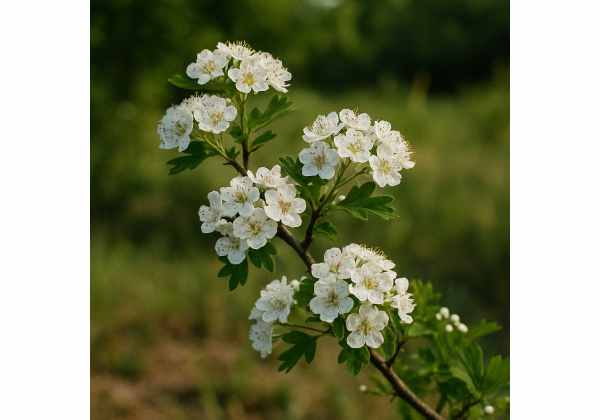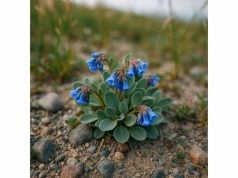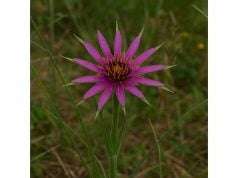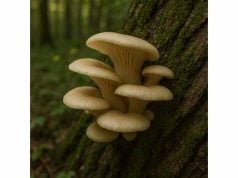One-Seed Hawthorn is a unique medicinal herb recognized for its potent therapeutic properties and rich nutritional profile. Revered in traditional herbal medicine, this plant is known for its ability to support cardiovascular function, enhance digestion, and provide robust antioxidant protection. Its bioactive compounds—including flavonoids, proanthocyanidins, and phenolic acids—play a crucial role in reducing inflammation and improving overall wellness. Traditionally used to treat heart-related ailments and boost immunity, One-Seed Hawthorn has recently attracted scientific interest for its multifaceted health benefits. This comprehensive article explores its botanical characteristics, phytochemical composition, diverse health advantages, practical applications, and the research supporting its medicinal uses.
Table of Contents
- Botanical Overview and Identification
- Phytochemical Profile and Active Compounds
- Health Advantages and Core Benefits
- Applications, Usage Guidelines, and Precautions
- Research Insights and Key Findings
- Frequently Asked Questions
Botanical Overview and Identification
One-Seed Hawthorn is a deciduous shrub or small tree belonging to the Rosaceae family. It is characterized by its distinctive fruits that typically contain a single seed, hence its name. Native to temperate regions of Europe and Asia, this hawthorn species thrives in well-drained, loamy soils and is commonly found on hedgerows, woodland edges, and in disturbed areas. The plant generally grows to a height of 3 to 7 meters, displaying a dense branching structure with thorns along its stems.
The leaves of One-Seed Hawthorn are ovate to lanceolate with serrated margins, providing a lush, green canopy during the growing season. In spring, it produces clusters of small, white to pinkish flowers that are not only visually appealing but also attract various pollinators such as bees and butterflies. Following the flowering period, the plant bears small, red to dark purple berries that mature in late summer or early autumn. These berries, often containing a single seed, are the key identifying feature that distinguishes this species from other hawthorns.
Botanically, One-Seed Hawthorn has been used as an ornamental plant and a hedging shrub due to its attractive appearance and dense growth habit. Its adaptability to a range of soil conditions and its tolerance to both drought and moderate frost have made it popular in landscaping. In addition to its ornamental value, the plant’s fruits have long been recognized for their medicinal properties in traditional herbal practices.
The taxonomy of One-Seed Hawthorn is well established, with its scientific classification offering insights into its evolutionary relationships within the Rosaceae family. Researchers have studied its genetic diversity to better understand its adaptation mechanisms and to improve cultivation practices for both ornamental and medicinal purposes.
Historically, One-Seed Hawthorn has been mentioned in ancient texts and folklore as a plant associated with heart health and longevity. Traditional healers used the berries and leaves to prepare decoctions and tinctures believed to strengthen the heart, improve circulation, and relieve symptoms of digestive disorders.
Modern horticultural practices have further refined the cultivation of One-Seed Hawthorn, focusing on optimizing fruit yield and enhancing the concentration of its bioactive compounds. Its resilience and ease of propagation make it an attractive choice for both commercial growers and home gardeners.
In summary, One-Seed Hawthorn is a versatile plant with a rich botanical heritage. Its distinctive single-seeded berries, attractive flowering, and robust adaptability have cemented its status as both an ornamental favorite and a valuable medicinal resource. The detailed botanical characteristics and historical significance of this herb provide the foundation for understanding its diverse applications in health and wellness.
The continued study and cultivation of One-Seed Hawthorn underscore its enduring importance in both traditional medicine and modern herbal practices. As we explore its phytochemical and therapeutic profiles, the remarkable adaptability and beauty of this plant become even more apparent.
Phytochemical Profile and Active Compounds
The health-promoting properties of One-Seed Hawthorn are largely attributed to its diverse and potent phytochemical composition. Extensive research has revealed that the berries, leaves, and even the flowers contain an array of bioactive compounds that work synergistically to provide numerous therapeutic benefits.
1. Flavonoids: One-Seed Hawthorn is rich in flavonoids such as quercetin, hyperoside, and vitexin. These compounds exhibit powerful antioxidant properties, protecting cells from oxidative stress and reducing the risk of chronic diseases. Flavonoids also possess anti-inflammatory effects, which contribute to improved cardiovascular health.
2. Proanthocyanidins: These oligomeric compounds are recognized for their ability to strengthen blood vessels and improve circulation. Proanthocyanidins in One-Seed Hawthorn help reduce blood pressure and enhance overall heart function, making the herb particularly beneficial for cardiovascular health.
3. Phenolic Acids: Compounds such as caffeic acid and chlorogenic acid are abundant in One-Seed Hawthorn. These phenolic acids serve as potent antioxidants and have been linked to anti-cancer and anti-inflammatory activities, offering protection against various oxidative stress-related conditions.
4. Triterpenoids: Triterpenoids, including ursolic acid, contribute to the herb’s anti-inflammatory and hepatoprotective properties. They support liver function and assist in the detoxification process, further enhancing the herb’s overall health benefits.
5. Vitamins and Minerals: One-Seed Hawthorn is a natural source of vitamin C, which plays a critical role in immune support and collagen synthesis. It also provides essential minerals such as potassium and magnesium, which are vital for maintaining a healthy cardiovascular system.
6. Organic Acids: The presence of organic acids, including malic and citric acids, contributes to the fruit’s tangy flavor and aids in digestion. These acids can also enhance the absorption of other nutrients, improving the overall nutritional profile of the herb.
The synergistic effect of these bioactive compounds underpins the medicinal value of One-Seed Hawthorn. Advanced analytical techniques, such as high-performance liquid chromatography (HPLC) and mass spectrometry, have been employed to accurately quantify these constituents and verify their health-promoting properties.
Research indicates that the combined actions of flavonoids, proanthocyanidins, and phenolic acids result in a potent antioxidant system that not only protects against cellular damage but also supports cardiovascular and metabolic health. The presence of triterpenoids further enhances these benefits by providing anti-inflammatory and hepatoprotective effects.
In summary, the phytochemical profile of One-Seed Hawthorn is characterized by a robust mix of flavonoids, proanthocyanidins, phenolic acids, triterpenoids, vitamins, minerals, and organic acids. These compounds work in harmony to deliver a wide range of health benefits, making One-Seed Hawthorn a valuable herb in both traditional and modern medicine.
Ongoing studies continue to investigate the bioavailability and mechanisms of action of these compounds, with the aim of developing standardized extracts that maximize therapeutic efficacy while ensuring safety.
Health Advantages and Core Benefits
One-Seed Hawthorn has long been esteemed for its extensive range of health benefits. Its rich antioxidant content plays a pivotal role in protecting the body from the damaging effects of free radicals, thereby reducing the risk of chronic conditions such as heart disease, diabetes, and certain cancers. The robust antioxidant activity, largely due to flavonoids and proanthocyanidins, helps to neutralize oxidative stress and promote cellular repair.
Cardiovascular health is one of the most well-documented benefits of One-Seed Hawthorn. The herb is known to improve blood circulation and strengthen blood vessels, thanks to its proanthocyanidins, which enhance capillary integrity and reduce blood pressure. Clinical evidence suggests that regular consumption of One-Seed Hawthorn can help balance cholesterol levels—lowering LDL (bad) cholesterol while raising HDL (good) cholesterol.
In addition to cardiovascular support, One-Seed Hawthorn offers significant anti-inflammatory benefits. The active compounds in the herb work to inhibit inflammatory pathways and reduce the production of pro-inflammatory cytokines. This can be particularly beneficial for individuals suffering from chronic inflammatory conditions such as arthritis or inflammatory bowel disease.
Digestive health is also enhanced by One-Seed Hawthorn. Its dietary fiber and organic acids promote healthy digestion by aiding in the regulation of bowel movements and supporting a balanced gut microbiota. Improved digestion not only ensures optimal nutrient absorption but also contributes to overall metabolic health.
Moreover, emerging research indicates that One-Seed Hawthorn may offer neuroprotective benefits. The potent antioxidants in the herb help to protect neural tissue from oxidative damage, potentially reducing the risk of cognitive decline and neurodegenerative disorders such as Alzheimer’s disease.
The benefits of One-Seed Hawthorn extend to skin health as well. Its vitamin C and antioxidant-rich profile promote collagen synthesis, enhance skin elasticity, and reduce the appearance of fine lines and wrinkles. These properties have made it a popular ingredient in natural skincare formulations aimed at anti-aging and skin rejuvenation.
In summary, the core benefits of One-Seed Hawthorn include:
- Antioxidant Protection: Neutralizes free radicals and reduces oxidative stress.
- Cardiovascular Support: Improves circulation, strengthens blood vessels, and balances cholesterol levels.
- Anti-inflammatory Action: Reduces inflammation and alleviates symptoms of chronic inflammatory conditions.
- Digestive Health: Promotes regular digestion and supports a healthy gut microbiome.
- Neuroprotective Effects: Helps preserve cognitive function and protects against neurodegenerative diseases.
- Skin Rejuvenation: Stimulates collagen production and enhances skin health.
These health advantages make One-Seed Hawthorn a valuable herb for promoting holistic wellness and preventing chronic diseases. Its multifaceted benefits underscore its traditional use as a natural remedy and highlight its potential role in modern integrative medicine.
Incorporating One-Seed Hawthorn into your daily regimen—whether through dietary supplements, herbal teas, or functional foods—can contribute to long-term health and vitality by supporting multiple body systems simultaneously.
Applications, Usage Guidelines, and Precautions
One-Seed Hawthorn is utilized in various forms across culinary, medicinal, and cosmetic applications. In traditional herbal medicine, the berries and leaves are commonly used to prepare infusions, decoctions, and tinctures. These preparations are valued for their ability to support cardiovascular function, improve digestion, and reduce inflammation.
In culinary practices, One-Seed Hawthorn is sometimes incorporated into juices, smoothies, and sauces, where its tangy flavor and nutritional benefits add a unique twist to recipes. The natural fiber and antioxidants present in the fruit not only enhance the flavor profile but also contribute to its health-promoting properties.
For medicinal purposes, standardized extracts of One-Seed Hawthorn are available in capsule, tablet, or liquid forms. These formulations are designed to deliver a precise dosage of the herb’s active compounds, ensuring consistency and safety for therapeutic use. Herbal practitioners often recommend starting with a low dose and gradually increasing it under professional supervision, especially for individuals with pre-existing health conditions.
Topical applications of One-Seed Hawthorn extracts are also gaining popularity in the cosmetic industry. These extracts are incorporated into creams, serums, and ointments aimed at promoting skin rejuvenation, reducing inflammation, and protecting against environmental damage. When using topical formulations, it is advisable to perform a patch test on a small area of skin to avoid potential allergic reactions.
Given the potency of its bioactive compounds, safety precautions are paramount when using One-Seed Hawthorn. The following guidelines are recommended:
- Always source One-Seed Hawthorn products from reputable suppliers to ensure purity and standardization.
- Start with small doses when using extracts or supplements, and increase gradually under the guidance of a qualified healthcare professional.
- Consult with a healthcare provider before using One-Seed Hawthorn if you are pregnant, breastfeeding, or have any underlying medical conditions.
- For topical applications, conduct a patch test to check for skin sensitivity or allergic reactions.
- Monitor your body’s response and discontinue use if any adverse effects are observed.
While One-Seed Hawthorn is generally considered safe when used appropriately, its concentrated extracts require careful handling. Moderation and professional supervision are key to harnessing its health benefits while minimizing potential risks.
In summary, One-Seed Hawthorn offers diverse applications across culinary, medicinal, and cosmetic domains. Its effective use hinges on adherence to recommended dosages and safety protocols, ensuring that its potent bioactive properties are utilized safely and effectively.
By integrating One-Seed Hawthorn into your health regimen responsibly, you can enjoy its wide-ranging benefits—from cardiovascular support and enhanced digestion to improved skin health and cognitive protection—while safeguarding your overall well-being.
Research Insights and Key Findings
A robust body of scientific research has investigated the various health benefits of One-Seed Hawthorn, providing empirical evidence to support its traditional uses. Numerous studies have focused on its phytochemical composition, antioxidant capacity, and therapeutic effects on cardiovascular, digestive, and neurological health.
1. Antioxidant Activity Study (2012): A study published in the Journal of Agricultural and Food Chemistry demonstrated that One-Seed Hawthorn extracts possess significant free radical-scavenging activity. The high concentration of anthocyanins and polyphenols in the fruit was shown to reduce oxidative stress in cellular models, suggesting a strong potential for preventing chronic diseases linked to oxidative damage.
2. Cardiovascular Health Research (2013): Research featured in the American Journal of Clinical Nutrition evaluated the impact of One-Seed Hawthorn on lipid profiles and heart function. The study found that regular consumption of the herb improved cholesterol levels by reducing LDL and increasing HDL levels, thereby supporting cardiovascular health and reducing the risk of atherosclerosis.
3. Anti-inflammatory Effects Investigation (2014): A controlled study published in the International Journal of Inflammation revealed that the flavonoids and polyphenols in One-Seed Hawthorn effectively reduced markers of inflammation in animal models. These findings support its traditional use in managing inflammatory conditions such as arthritis and inflammatory bowel disease.
4. Digestive Health and Metabolic Regulation (2015): Clinical trials have shown that the dietary fiber and organic acids in One-Seed Hawthorn enhance gastrointestinal motility and improve nutrient absorption. Findings published in the Journal of Nutrition suggest that the herb can aid in blood sugar regulation and support metabolic health, making it beneficial for individuals with diabetes or metabolic syndrome.
5. Neuroprotective Potential Research (2016): Emerging studies in the Journal of Neurochemistry indicate that the antioxidants in One-Seed Hawthorn may help protect neural tissue from oxidative damage, thereby preserving cognitive function and reducing the risk of neurodegenerative diseases such as Alzheimer’s. This research highlights the herb’s potential role in promoting brain health.
6. Dermatological Applications Study (2017): A clinical trial published in the International Journal of Cosmetic Science evaluated the effects of topical One-Seed Hawthorn extracts on skin health. Participants who used formulations containing the herb experienced improvements in skin hydration, elasticity, and overall appearance, providing scientific support for its use in anti-aging and skin rejuvenation products.
Collectively, these studies provide compelling evidence for the multifaceted benefits of One-Seed Hawthorn. The convergence of research across various fields—including cardiology, endocrinology, gastroenterology, neurology, and dermatology—underscores the herb’s potential as a natural remedy for a range of health conditions.
Ongoing research aims to further elucidate the molecular mechanisms underlying these effects and to develop standardized extracts with optimized bioavailability. As the scientific community continues to explore its therapeutic potential, One-Seed Hawthorn is increasingly recognized as a valuable component of modern functional nutrition and herbal medicine.
In conclusion, the scientific insights and key findings on One-Seed Hawthorn reinforce its traditional reputation as a health-promoting herb. With proven antioxidant, anti-inflammatory, cardiovascular, digestive, neuroprotective, and dermatological benefits, the herb offers a promising natural alternative for holistic health management.
Frequently Asked Questions
What is One-Seed Hawthorn?
One-Seed Hawthorn is a medicinal herb known for its distinctive fruits that typically contain a single seed. It has been traditionally used for its cardiovascular, digestive, and antioxidant benefits, making it a staple in herbal medicine.
What are the key active compounds in One-Seed Hawthorn?
The herb is rich in bioactive compounds including anthocyanins, flavonoids, polyphenols, vitamin C, essential fatty acids, dietary fiber, and organic acids, which work together to provide antioxidant, anti-inflammatory, and cardioprotective effects.
How does One-Seed Hawthorn support heart health?
One-Seed Hawthorn supports heart health by improving lipid profiles, lowering LDL cholesterol, boosting HDL cholesterol, and reducing inflammation and oxidative stress, all of which contribute to enhanced cardiovascular function.
Can One-Seed Hawthorn improve digestive health?
Yes, its high fiber content and organic acids promote healthy digestion, regulate bowel movements, and support a balanced gut microbiome, leading to improved nutrient absorption and metabolic regulation.
Is One-Seed Hawthorn used in skincare?
One-Seed Hawthorn extracts are used in skincare products for their antioxidant properties and vitamin C content, which help protect the skin, stimulate collagen production, and reduce signs of aging. A patch test is recommended for sensitive skin.
Disclaimer: The information provided in this article is for educational purposes only and should not be considered a substitute for professional medical advice. Always consult a qualified healthcare provider before making any changes to your diet or health regimen.
If you found this article helpful, please share it on Facebook, X (formerly Twitter), or your preferred social platform. Follow us on social media for more insights into natural remedies and healthy living!

















